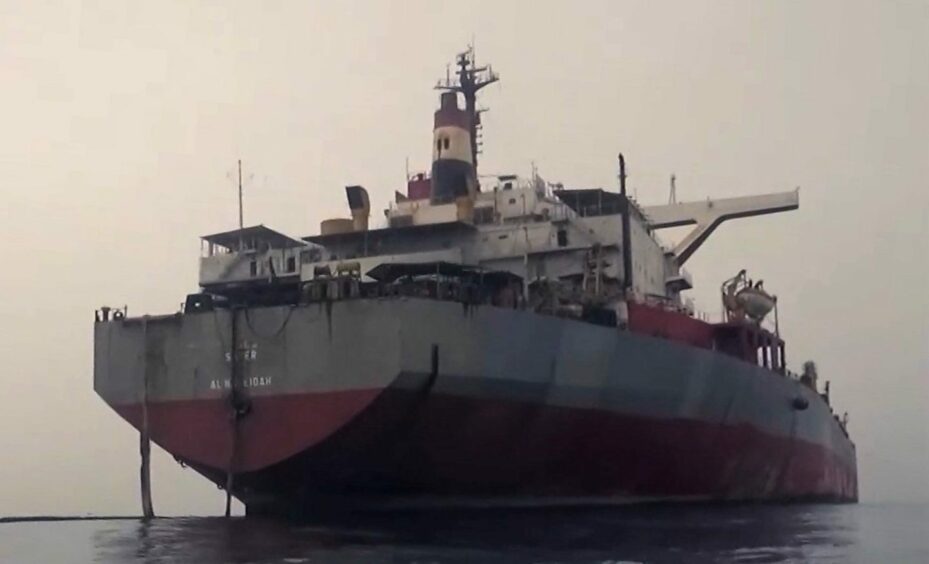
The UK will provide another £2 million to help the FSO Safer, a deteriorating vessel holding around 1 million barrels of oil offshore Yemen.
The United Nations launched a project to raise cash in May. The plan requires $80mn for the first phase.
The UK committed £4mn initially, bringing its total to $6mn.
Minister for the Middle East Amanda Milling announced the £2mn boost today.
“A major oil spill from the Safer oil tanker would create an ecological disaster in the Red Sea and exacerbate the dire humanitarian crisis in Yemen,” Milling said.
“The UK is stepping up our support to resolve this crisis. The UN are ready to implement an emergency operation but the international community must increase funding to allow them to get started.”
Milling announced the additional cash at a meeting today with representatives from Oman, Saudi Arabia, the United Arab Emirates and the US.
Of the $80mn required, $60mn has now been pledged.
The first phase of the project involves removing the oil from the FSO onto a leased vessel, which should take around four months. This will allow repairs and maintenance on the Safer.
In the longer term, the plan is to install a replacement tanker. The statement from the Foreign, Commonwealth & Development Office (FCDO) said it was among the largest tankers in the world.
In May, the UK pledged £4 million pounds to the appeal.
Slow process
UN representative to Yemen David Gressly, when launching the appeal, said work needed to start by the beginning of June. By September or October, winds and currents will make it increasingly dangerous to carry out the lightering.
Boskalis has been named as the company likely to carry out the work, using its Smit unit.
The second phase, of chartering a new vessel to replace the Safer, would cost another $64mn.
The International Crisis Group (ICG) has said the “calculation is simple”. The world can spend $80mn to carry out the first phase. Or it can risk an environmental disaster that may costs “billions upon billions”.
The $80mn is not a gift to the Houthi rebels, it said. Rather this is “an essential act of protecting their strategic interests and economic wellbeing, as well as the fragile ecology of the Red Sea basin”.
